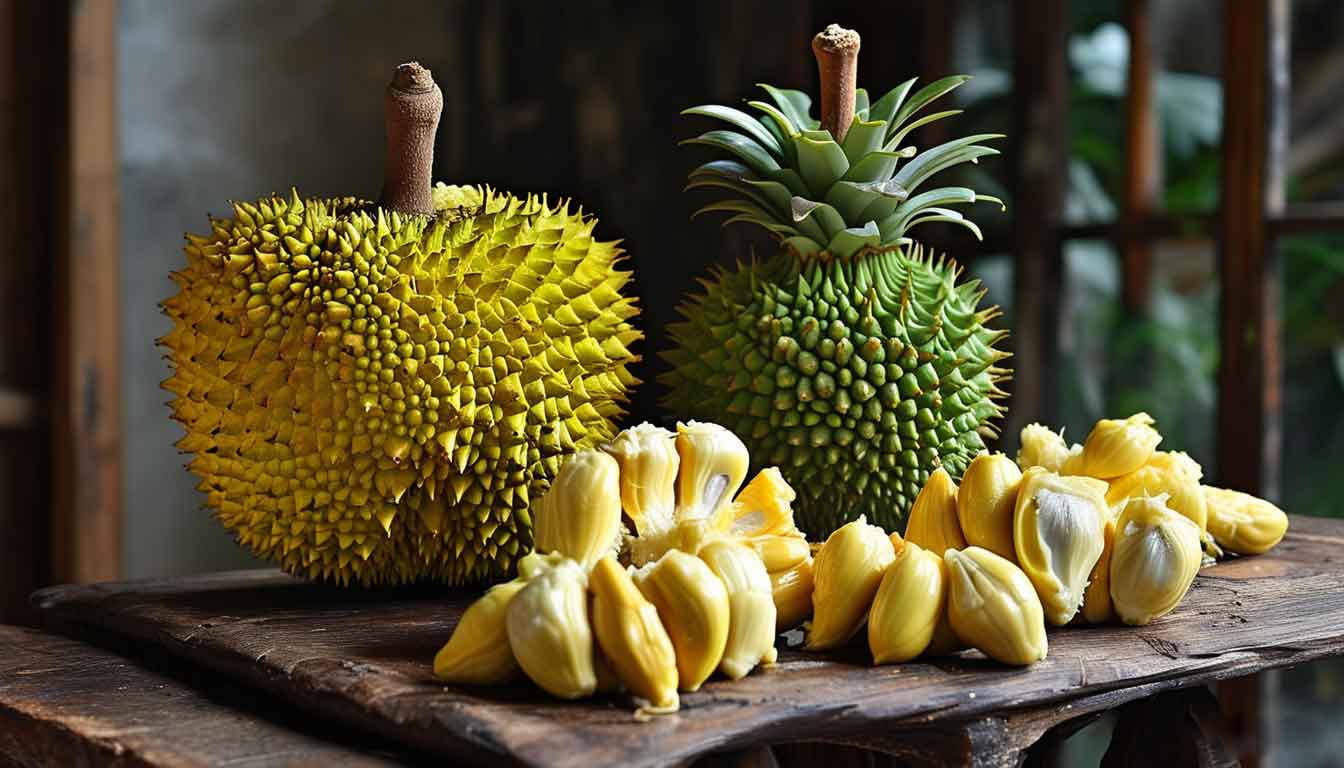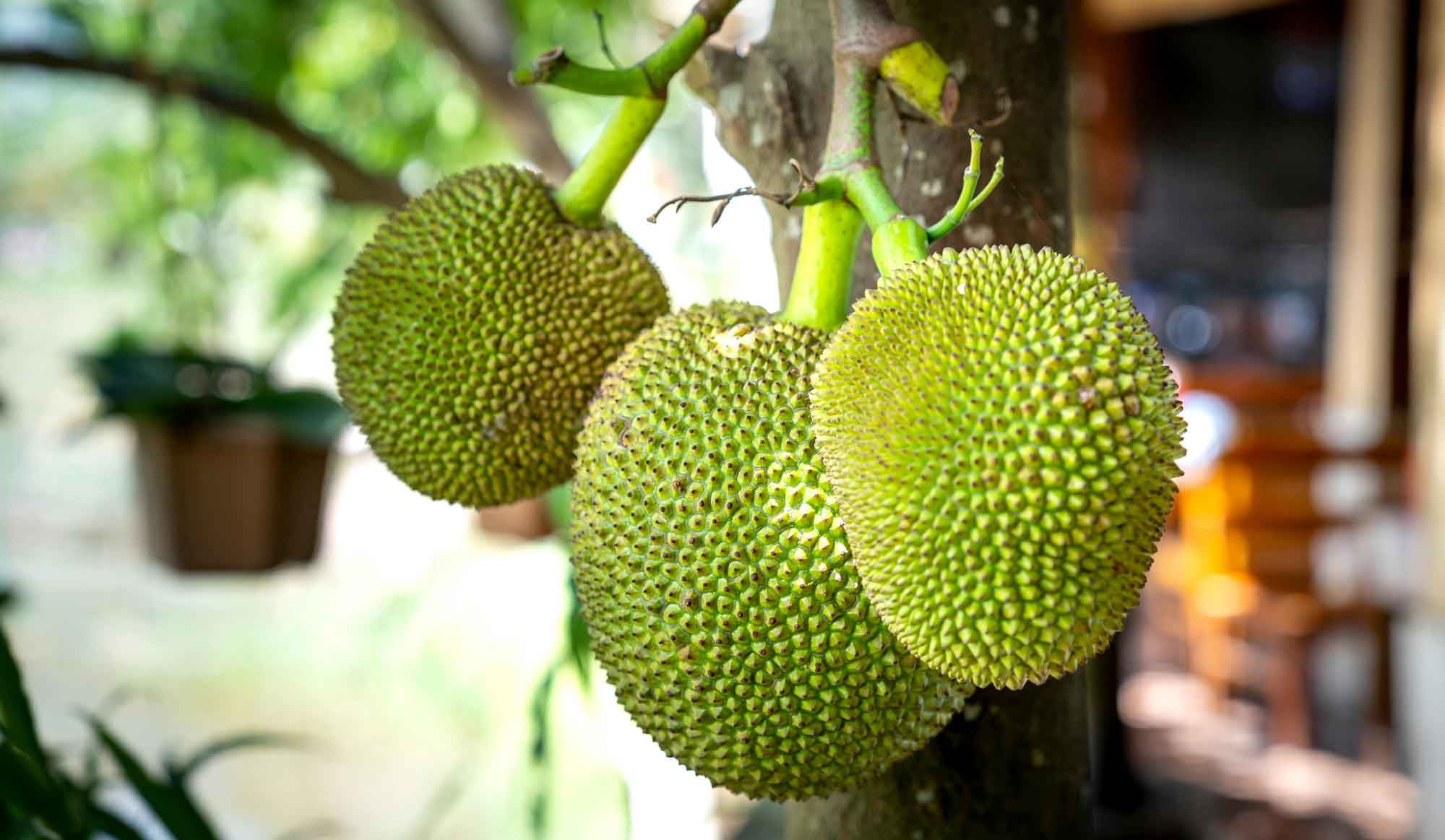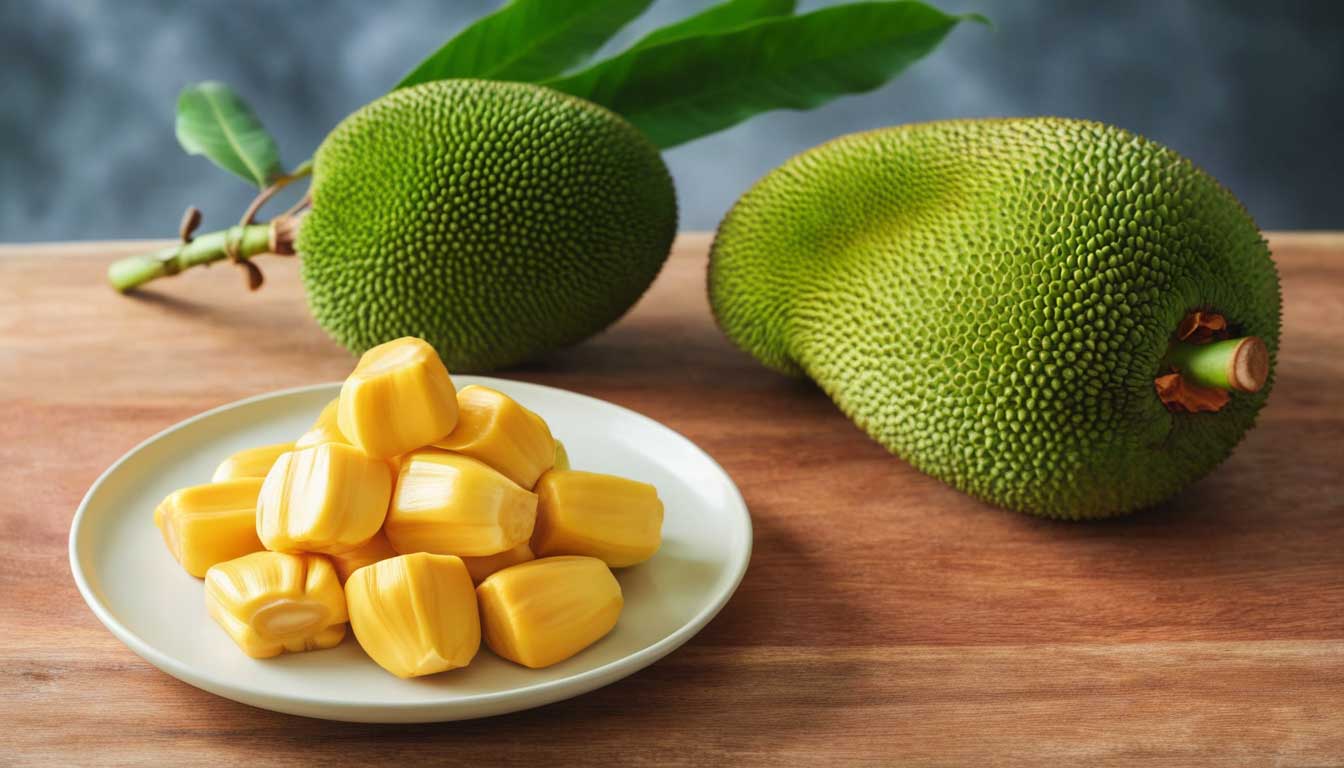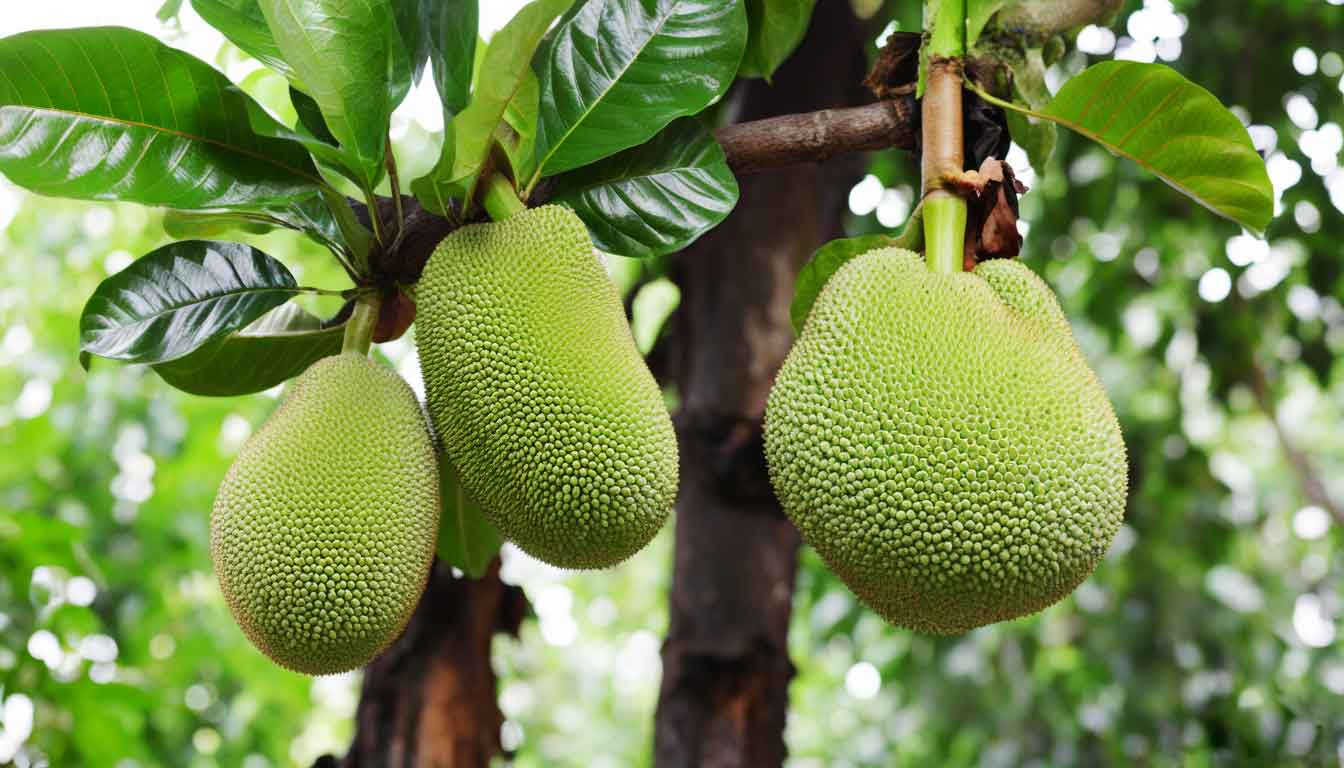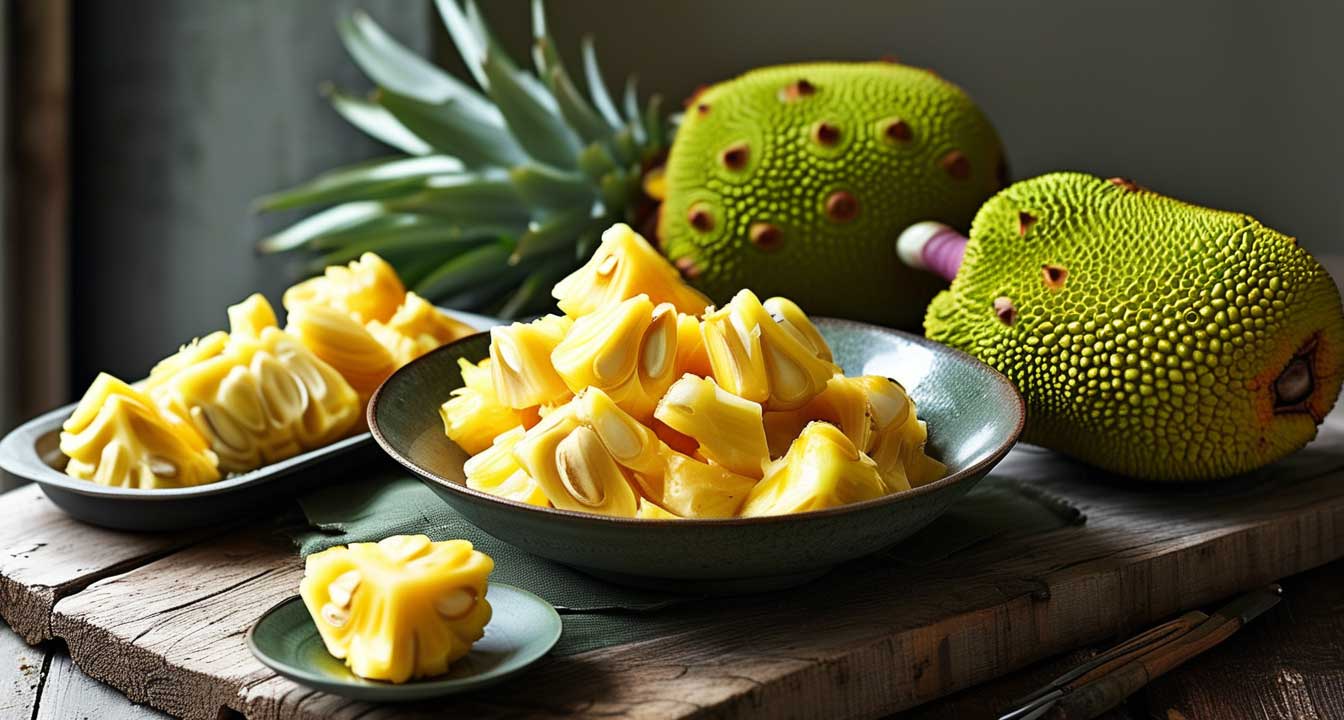Jackfruit is a delicious, tropical fruit with a sweet taste and meaty texture that’s popular in many dishes. But can dogs eat jackfruit? The short answer is yes, but with some important precautions. If you’re thinking of sharing a bite of jackfruit with your pet friend, here’s everything you should know to keep your dog safe and healthy.
What is Jackfruit?
Jackfruit is a large, green fruit that grows on trees native to parts of India, Southeast Asia, Africa, and Brazil. The fruit has a sweet flavor, often compared to a combination of pineapple and banana when it’s ripe. Unripe jackfruit, on the other hand, has a neutral flavor and a meaty texture, which makes it a popular meat substitute in vegetarian and vegan dishes. Jackfruit is packed with vitamins, fiber, and water, making it a nutritious treat for dogs — but only when prepared properly.
Can Dogs Eat Jackfruit?
Yes, dogs can eat jackfruit in moderation, but there are a few precautions to keep in mind. While the fruit itself is safe, the seeds and rind should be avoided at all costs because they pose risks to your dog’s health.

What to Do if Your Dog Eats Jackfruit Seed
If your dog manages to eat a jackfruit seed, it’s important to take immediate action. Here’s what you should do:
- Stay Calm and Observe: Keep an eye on your dog for any unusual behavior. Symptoms of poisoning or discomfort from the seed could include drooling, vomiting, lethargy, or signs of abdominal pain.
- Call the Vet: Contact your veterinarian right away, even if your dog seems okay. Raw jackfruit seeds contain toxic compounds that can cause stomach upset or more serious issues if ingested.
- Watch for Choking: The seeds of jackfruit are large and can pose a choking hazard, especially if your dog tries to swallow them whole. If your dog is having difficulty breathing or seems to be choking, get help immediately.
- Monitor for Allergic Reactions: While rare, some dogs may have an allergic reaction to jackfruit, which can cause itching, swelling, or skin rashes. Keep an eye out for these signs and call the vet if they appear.
No related posts found.
Why Are Jackfruit Seeds Dangerous for Dogs?
Jackfruit seeds contain certain compounds that can be toxic to dogs, potentially causing stomach upset, vomiting, and other digestive issues. Additionally, the tough, hard texture of the seeds presents a choking hazard, especially for smaller dogs or those who eat quickly.
It’s also worth mentioning that the latex-like sap from the jackfruit can be irritating to a dog’s skin, especially if they have sensitive skin conditions like eczema. Therefore, make sure to remove the seeds and rind before giving your dog any jackfruit.
Is Cooked Jackfruit Good for Dogs?
Yes, cooked jackfruit can be safe for dogs and can even make it easier for your dog to digest. However, there are some important rules to follow when preparing it:
- Remove Seeds and Rind: Always remove the seeds and rind before cooking or serving the jackfruit to your dog. These parts of the fruit are not safe and can cause harm.
- Cook It Simply: Cooking jackfruit by steaming or baking is a good way to make it easier for your dog to digest. Avoid adding any seasoning, oils, or butter, as these ingredients can be harmful to dogs.
- Serve in Small Portions: Like any new food, introduce jackfruit in small amounts and monitor your dog’s reaction. A small amount of jackfruit flesh should be enough to check if your dog enjoys it and tolerates it well.
- Avoid Dried Jackfruit: While fresh jackfruit can be beneficial, dried jackfruit or jackfruit chips should be avoided. Dried jackfruit often contains added sugars, preservatives, and flavorings, which can be harmful to dogs, especially those with health issues like diabetes or weight problems.
Health Benefits of Jackfruit for Dogs
When fed in moderation and prepared properly, jackfruit can offer some health benefits for your dog. Here’s why it might be a good addition to your dog’s diet:
- Vitamins and Minerals: Jackfruit is packed with healthy nutrients, including vitamin A, vitamin C, vitamin B6, potassium, and magnesium. These vitamins and minerals can help support your dog’s immune system, promote healthy skin and coat, and boost overall well-being.
- High in Fiber: Jackfruit is high in fiber, which can aid in digestion, help regulate blood sugar levels, and support a healthy heart. If your dog has digestive issues, a small amount of jackfruit could help with regular bowel movements.
- Hydration: Jackfruit contains a lot of water, making it a good fruit for keeping your dog hydrated. The high water content can also aid in digestion and help your dog absorb nutrients more effectively.
Risks of Feeding Jackfruit to Dogs
While jackfruit has its benefits, there are also some risks associated with feeding it to your dog. Here are a few potential health concerns:
- Choking Hazard: As mentioned earlier, jackfruit seeds and the tough rind can be dangerous if your dog attempts to swallow them. Always remove these parts before serving.
- Toxicity: Jackfruit seeds contain toxic compounds that can harm your dog’s digestive system. Always make sure you’re only giving your dog the fleshy part of the fruit.
- Stomach Upset: Too much jackfruit can upset your dog’s stomach, causing gas, diarrhea, or vomiting. Always introduce new foods gradually and in small amounts.
- Allergies: Although rare, some dogs may have an allergic reaction to jackfruit. Look out for signs like itching, rash, or swelling, and contact your vet if you notice these symptoms.
5 Important Tips for Feeding Jackfruit to Your Dog
If you decide to give jackfruit to your dog, keep these tips in mind to ensure it’s safe:
- Deseed the Jackfruit: Always remove the seeds before offering any jackfruit to your dog. The seeds contain toxic compounds that can cause health issues.
- Remove the Skin: Jackfruit has a tough outer rind, which should never be eaten by dogs. Only feed your dog the soft flesh of the fruit.
- Cut the Fruit into Small Pieces: Cut the jackfruit into small, bite-sized pieces to avoid choking hazards.
- Serve Fresh or Cooked: Fresh jackfruit can be given raw, but if you prefer, you can steam or bake it. Avoid using oils or seasonings that might be harmful to your dog.
- Avoid Dried Jackfruit: Dried jackfruit is high in sugar and often contains additives, so it’s not a safe option for dogs.
Conclusion: Can Dogs Eat Jackfruit?
Yes, dogs can eat jackfruit in moderation, but only if it’s prepared properly. Be sure to remove the seeds and rind, serve only the soft flesh, and introduce it gradually to see how your dog reacts. Cooked jackfruit is a safer option than dried jackfruit, which can contain added sugars and preservatives.
If you’re unsure about whether jackfruit is a good treat for your dog, consult your vet. Some dogs may have allergies or sensitivities to new foods, so it’s always best to be cautious. As long as you follow these guidelines and feed jackfruit in moderation, it can be a healthy, hydrating snack for your dog.


